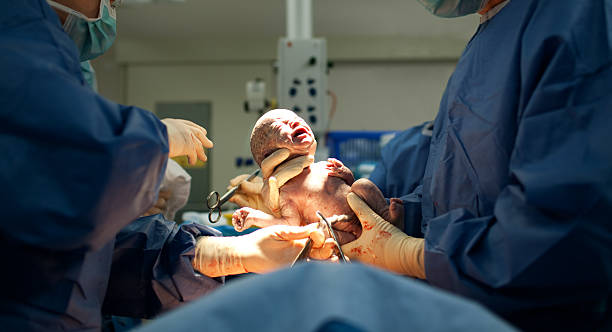Medical experts warn that performing cesarean section deliveries at freestanding outpatient birth centers, a practice allowed by a recently instated Florida law, would be dangerous for expecting mothers.
This law, which is the first of its kind in the country, comes as the United States is experiencing a maternal mortality rate that considerably exceeds those of comparable high-income countries.
Critics have pointed out that these proposed new facilities, to be called advanced birth centers, will not be able to rapidly mobilize extra staff, equipment and expertise if complications were to suddenly occur, as a hospital typically would be expected to.
Gov. Ron DeSantis signed the bill into law in March as part of a comprehensive health care package that included initiatives aimed at bolstering the state’s health care force. KFF Health News reported that a physicians’ group called Women’s Care Enterprises, owned by the London-based investment firm BC Partners, lobbied for the legislative change.
The law stipulates that the new advanced birth centers will have to be equipped with at least one surgical suite and be able to transfer patients to a hospital if necessary, though the measure does not disclose how near the hospital must be.
However, Dr. Nandini Raghuraman, an assistant professor of maternal fetal medicine at Washington University in St. Louis, told the Times that C-section complications, like bleeding and damage to surrounding tissue, “require immediate attention and assistance from other hospital teams, and resources like an intensive care unit, ventilators and additional surgical assistance.”
“A pregnant patient who is considered low risk in one moment can suddenly need lifesaving care in the next,” said Dr. Cole Greves, the Florida district chairman for the American College of Obstetricians and Gynecologists.
According to the director of the Jacobs Institute of Women’s Health, Julia Strasser, these facilities are not likely to minimize the issue of maternity care deserts in the state as their accepted insurance doesn’t cover many low-income residents, though that’s the primary incentive being used to promote these centers.
The new law also permits advanced birth centers to care for women attempting a vaginal delivery after a previous cesarean delivery, despite the fact that experts argue these births can be extremely dangerous if the uterus ruptures and massive bleeding ensues.
“Advanced birth centers, even with increased regulations, cannot guarantee the level of safety patients would receive within a hospital,” said Dr. Greves.












